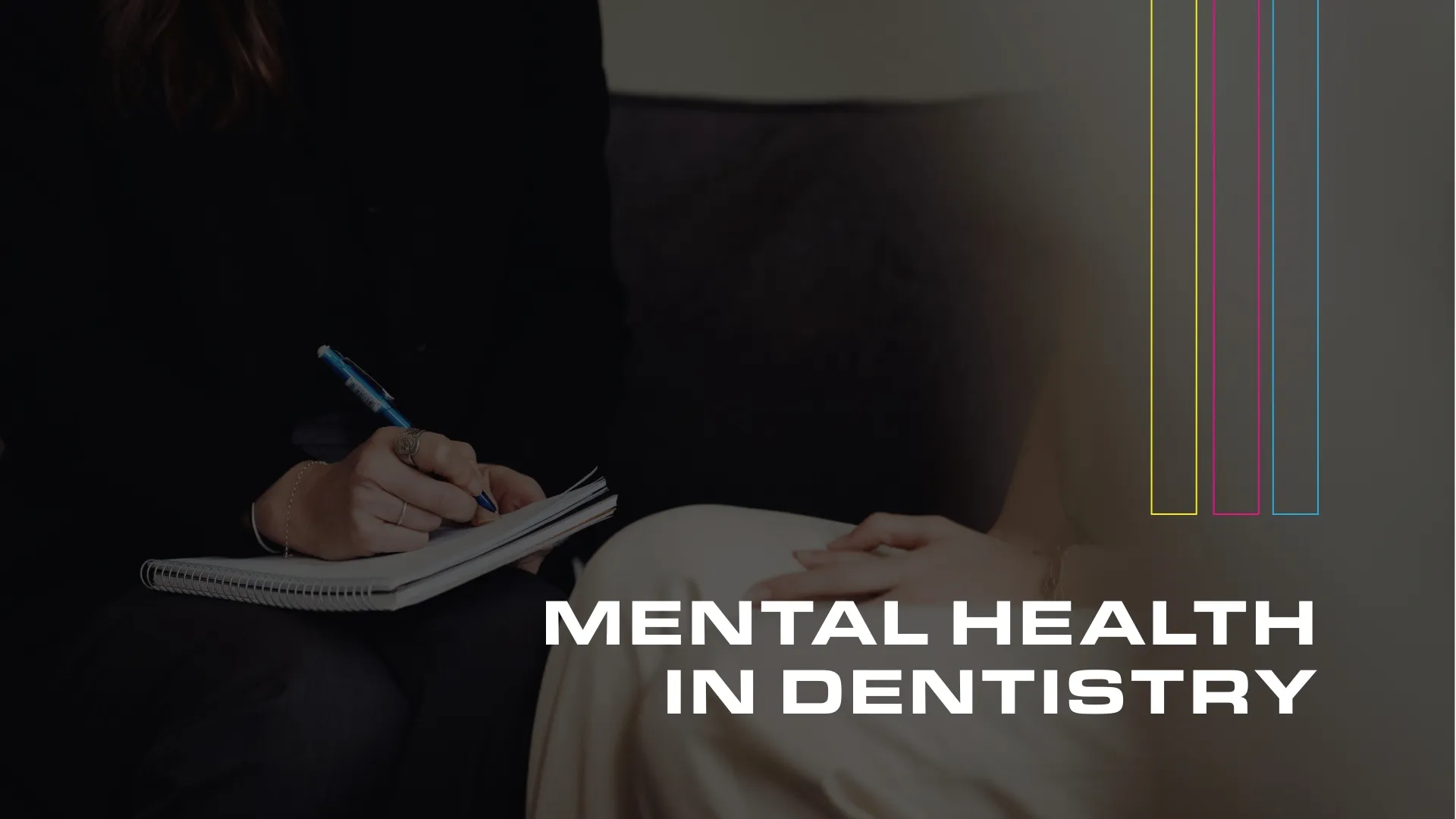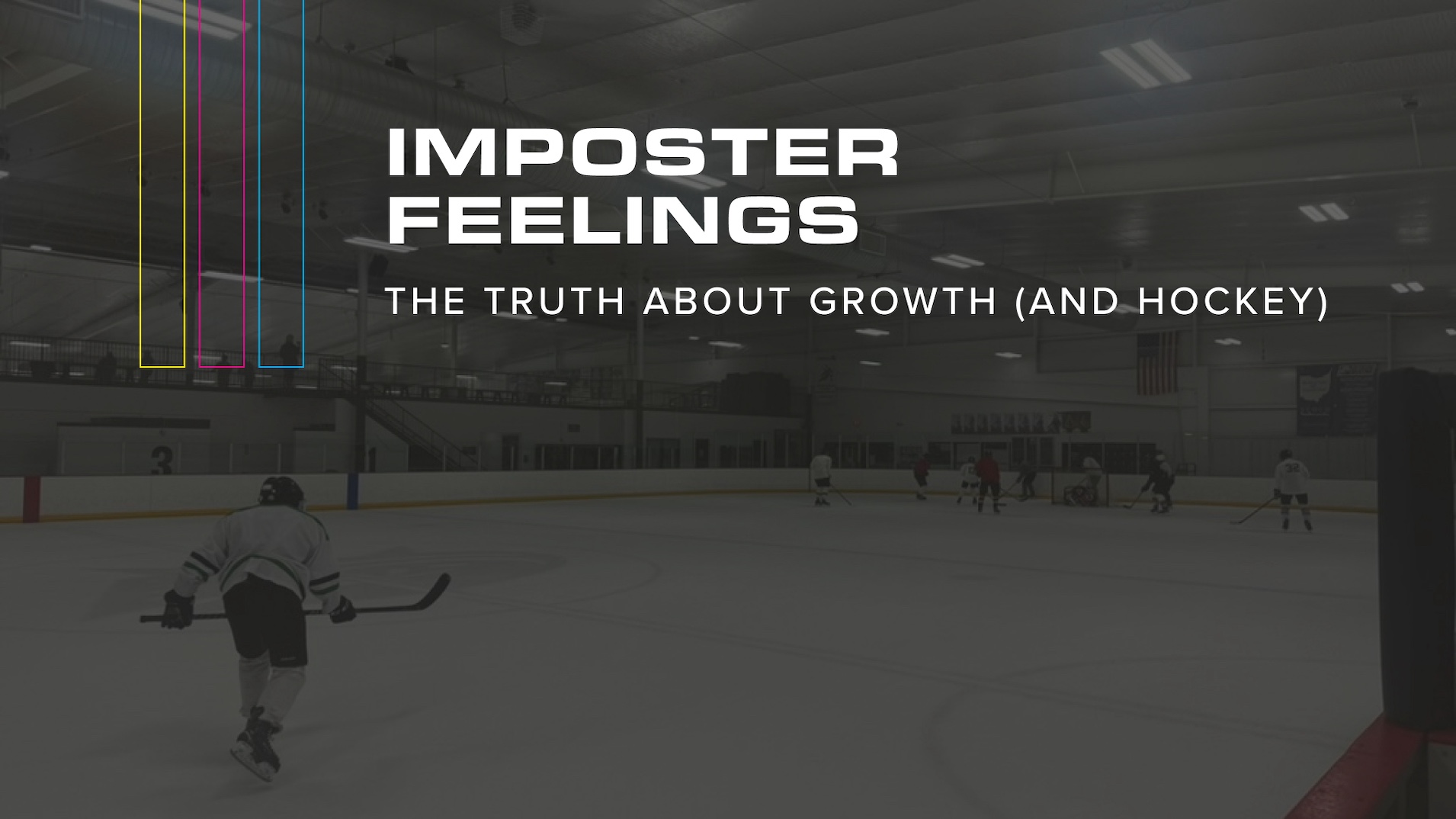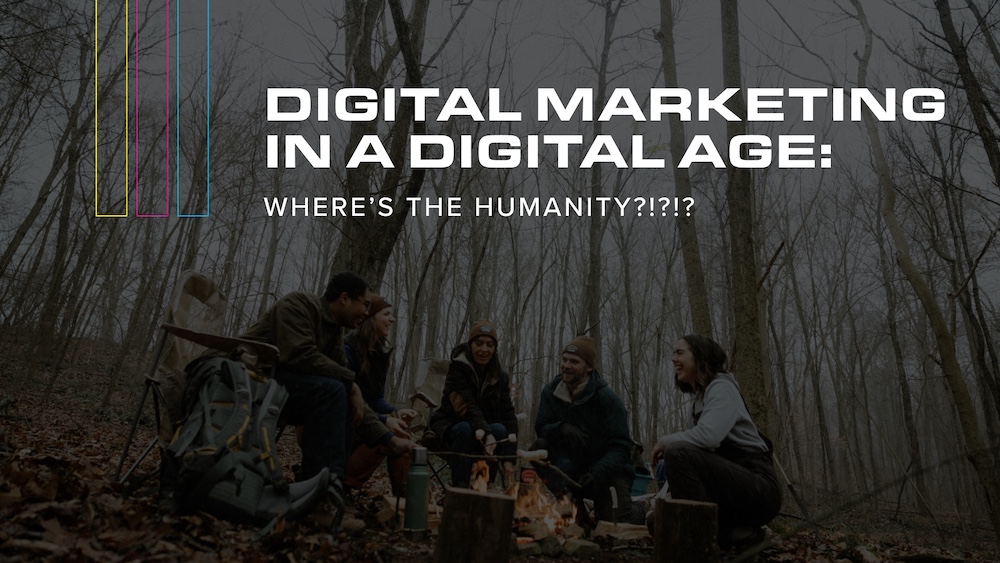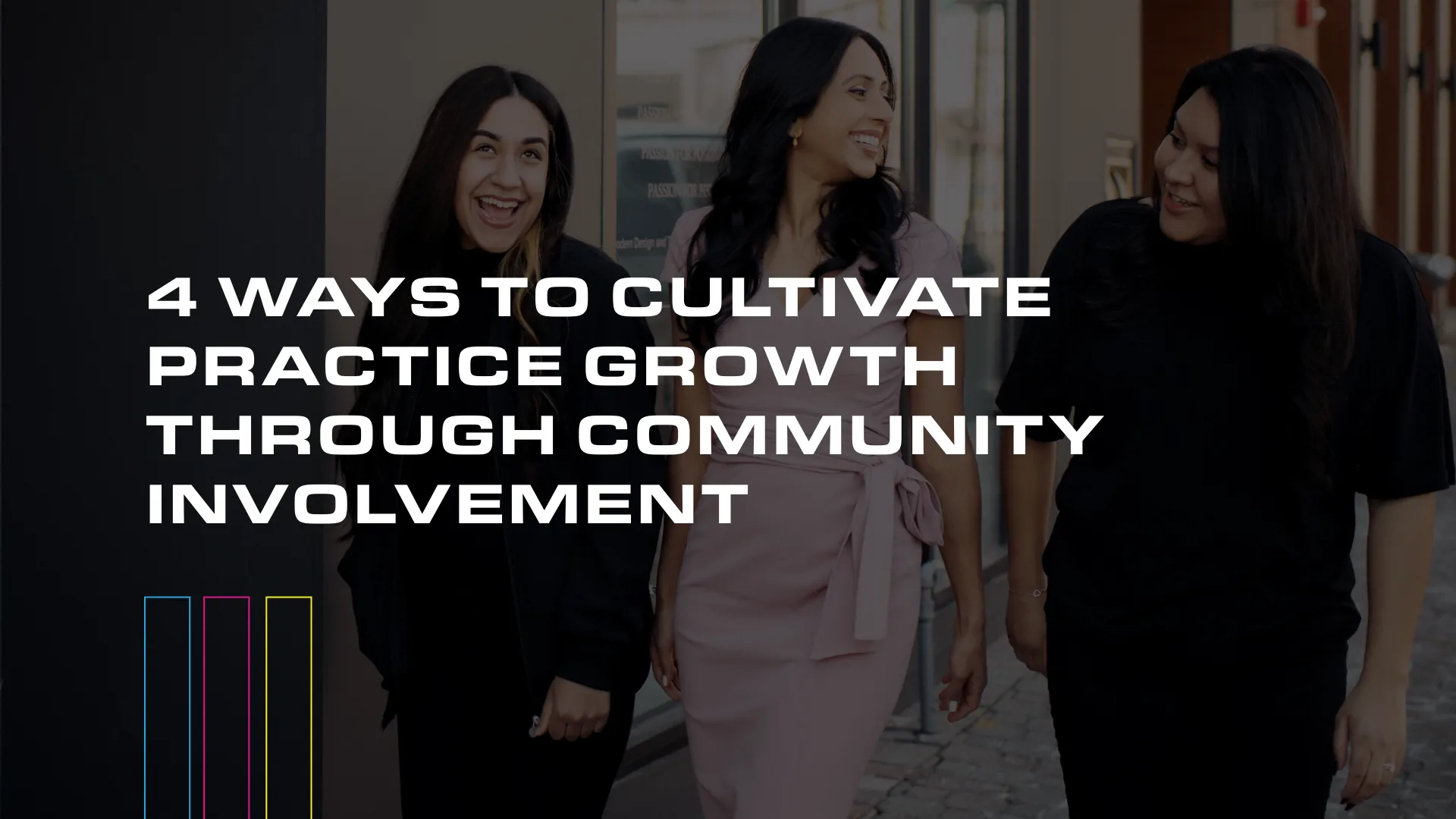Mental Health & Dentistry: Bridging the Gap
I was about six years old when I first went to the dentist, and I remember it well. My brave mother made sure my three brothers and I were tidily dressed, our hair combed shiny and sneakers snuggly tied. I wore a matching shirt and shorts with purple violets printed all over. The level of care and preparation made me feel like we were going somewhere important. We piled out of our minivan onto the lawn of a brick craftsman house, a flag featuring a tooth waving at us from the front porch.
My brothers and I were pretty fearless in general, and we didn’t know dental visits were something other kids dreaded. Each of us did well for our first time in the chair – it was better than shots at the pediatrician, at least. Actually, I kind of loved it. Fluoride gel felt cool and tingly, I got complimented on my clearly-superior brushing skills, and the treasure chest full of free stuff? Um. Heck yes! The only bad feeling I ever remember having at the dentist was being told I didn’t need braces, a huge bummer. Braces were so cool!
All this to say that when I started working in dentistry many years later, it took a while for me to catch on to the idea of dental anxiety. My clients were all dentists with many concerns, and at the top of the list was mitigating the concerns and fears of their patients. I also learned that dentists themselves reported high levels of anxiety, depression, and suicidal ideation. (Not something you normally hear when starting an exciting new job in marketing.)
“The 2021 Dentist Well-Being Survey Report revealed that the percentage of dentists diagnosed with anxiety more than tripled in 2021 compared with 2003.” [American Dental Association article, published May 9, 2022]
It started to make sense why Studio EightyEight picked Empathy as one of our core values. My job as an account manager, much like my clients’ job as dentists, became alleviating fear and anxiety, but in my case it was anxiety around the daunting tasks of building and marketing a website. If I could put clients at ease, it made working relationships (and websites) a lot better. (Let’s not get into my lack of sedation options. 😉)
So when the chance came to work with a client in the mental health field, I immediately jumped at it. Every once in a while we get word-of-mouth referrals, and friends of friends in non-dental industries become our clients. From the moment I met my new client on our welcome call, I wanted to ask her questions that could help the dentists we serve. Luckily, she was all for it.
That’s how I came to be sitting across from Dr. Robyn Pashby, a clinical health psychologist working at the intersection of mental and physical health. She followed a rare course of study, earning a dual-track PhD in Medical and Clinical Psychology, and works with “both sides of the chair,” meaning medical patients and their care providers.
A unique profession
Adding to her prestigious pedigree, Dr. Pashby lives and practices in Washington, D.C., the capitol of ultra-polished and poised professionals. My nerves were warranted, but I felt her expertise at work as she magically set me at ease with both her words and demeanor.
“I’ve really grown to understand [dentists] face a unique set of stressors in their field,” she began. “Many of them are considered surgeons, so they have the requirements of surgical precision mixed with the esthetic requirements of dentistry. And that is pretty unique.”
Dr. Pashby validated the hardships dentists experience: juggling patient care, perfecting their craft, business ownership, fighting with insurance companies, the job’s physical demands, and the demands of patient expectations. Understanding the mental health of dentists starts with understanding their patients.
“They're aware when people walk in the door that nobody really wants to be there. People are often afraid. People are fearing not just the pain, but the the feeling of helplessness being in the chair,” Dr. Pashby said.
Some days five kids walk in your door and handle their first treatment with surprising nonchalance, but their mother is financially stressed due to lack of insurance. Other days someone is in excruciating pain, unable to eat or sleep well. (Very few of us are at our best in that condition.) Other days you’ll see someone with a chronic issue that takes a tremendous amount of patience to endure, which is frustrating for both the patient and those tasked with their care.
Dr. Pashby explained that often her work with physicians and dentists uncovers vicarious (second-hand) trauma in addition to cumulative stress and burnout. Anxiety is catching, like a virus, because humans are social creatures that are impacted by each others’ moods. Those who work around a lot of stressors will naturally feel more stress.
Like marketing, dentistry can appear to be flashy, sleek, and all smiles. But the humble day-to-day has more in common with therapy than we typically consider. We spend a lot of energy removing anxiety, meeting people where they are, and treating others how we want to be treated – even when it’s hard and unreciprocated.
A unique generation
The same 2021 survey quoted above found that dentists younger than 40 years old were more likely to score higher on the depression risk assessment than older dentists, and have lower perceived self-competence. Dentistry is a profession that takes years to perfect, but I wondered if there were other factors at play.
Work-life balance, while a consideration and #lifegoal for us all, can be especially difficult for those in what Dr. Pashby calls the “Sandwich Generation.” As life expectancy climbs and people start families later, it is more likely than ever that people in their 30s-40s find themselves caring for both very young children and aging parents or grandparents.
Other considerations to do with age are the long-term effects of the Covid-19 pandemic. Though we’re a few years removed from the crisis, the impact of it cannot be understated – and is something we tend to shy away from in our desire for normalcy. “Covid just did a number on dentists,” Dr. Pashby said. “People who were within 5 to 10 years of retirement took their retirement early in many cases, the number of people entering dental school decreased, the number of hygienists significantly decreased. Any time you have added responsibility and less support, that’s a recipe for mental health conditions to pop up.”
”The impact of traumatic stress doesn’t end when the trauma is over.” - Dr. Robyn Pashby
These factors lead to burnout and isolation under an intense workload. But dentistry is an intense field all the time, so I wondered if dentists are less likely to know when they’re enduring more than they can healthily handle without support. Dr. Eric Teeters, another Clinical Psychologist based in Washington D.C., writes about warning signs in his article Mental Health in Dentistry. “Unresolved mental health challenges can significantly hamper their decision-making abilities,” Dr. Teeters writes. In turn, this leads to inefficiency, lack of confidence, and bottom line: poor-quality patient care. Dentists’ primary concern – their patients – is what’s at stake when their own mental health is shaky.
Tried and true solutions
Because I didn’t understand dental anxiety before entering the industry, I also couldn't comprehend the cyclical nature of the “bad rep” dentistry can be associated with. If patient anxiety elevates the pressure dentists feel from internal and external expectations, and that pressure escalates to the unresolved mental health challenges Dr. Teeters mentions, and those lead to bad experiences for the patient… it becomes a dog chasing its tail. “It is a ripple effect, where mental health issues that aren't addressed can cast a shadow over the professional landscape of dentistry,” says Dr. Teeters. “This underlines the crucial need for mental health support within the dental community, not just for the well-being of the dentists themselves, but also to ensure the delivery of quality patient care.”
The American Dental Association (ADA) has taken more steps in recent history to address the issue of mental health and emphasize its urgency. They currently offer mental health resources such as guided meditations and webinars about resiliency. But Dr. Pashby’s primary suggestion takes a more localized approach, offering that dentists could take a leaf out of the psychologist’s handbook. “One of the things that psychologists do really well is rely on each other,” she said. They have their own therapists and talk in groups about everything from the stress of running a practice, working with patients, and picking kids up from daycare. “Dentists really benefit when they have an outlet,” Dr. Pashby said. “They have so much to share, and just having a space to put it takes down the temperature significantly.”
“We want people to know that this whole stigma of needing to hide from mental health issues must be addressed now.” - ADA, 2022
Finding a small group of old dental school friends to meet with once a month, joining a facebook group like Mommy Dentists in Business and The Making Of a Dental Startup, or going to a conference like Dental Success Summit or a retreat with Dental Entrepreneur Women, can contribute to mental wellness by leaps and bounds. Seeking out individual therapy and helping to remove the stigma of mental health issues in dentistry can move the needle even further. “It’s okay to need support,” said Dr. Pashby emphatically. “If I could share any message with dentists out there it would be: please know that [psychologists] like me understand what those pressures are like, and we want to support you. There's no shame in having support as you go through this journey.”
Discussions of mental health are relatively new to dentistry (the first study Dr. Pashby found was published as recently as the 1980s), so it’s no wonder stigma still has a stronghold. Many of our dental clients love innovation, new technology and new techniques that improve their ability to do transformative work. I wonder if those qualities make it harder for dentists to accept that tried and true methods of promoting mental wellness – support groups, talk therapy, and positive relationships – can still have transformative effects from the inside out. The next big thing in mental healthcare is: just try it!
We’re glad to see some of our clients, friends, and influencers in the dental community broach this topic more frequently, talking about their struggles and creating communities of support. Our webinar with Dr. Sharon Parsons and the rest of the Women Shaping Dentistry Tomorrow panel, the recent 6-year update interview we did with Dr. Ashley Joves of Smile & Co and The Making Of, and our mental health interview series from 2020 highlighted personal stories that so many dentists can relate to. No matter the pressure you’re under or the anxieties you’re facing, you are not alone. If you are seeking the support of peers or professionals, please check out these resources.
Resources & Groups
If you or someone you know is experiencing suicidal thoughts or a crisis, please text or dial 988 to be connected to the National Suicide Prevention Lifeline. This service is free and confidential.
Health Psychology Partners: Founded by Dr. Robyn Pashby, this group of Medical Health Psychologists has unique experience with “both sides of the chair,” working with both medical professionals and patients. Physical location in Washington, D.C. and licensed Telehealth in 45 states.
Chesapeake Institute for Behavioral Health: Dr. Eric Teeters offers individual therapy that is personalized and tailored for your specific needs. He specializes in psychological methods focused on unhelpful thoughts and behaviors around health, healthcare, and wellness. Physical location in Washington, D.C. and licensed Telehealth in 45 states.
The Mint Door facebook group
Mommy Dentists in Business facebook group
The Making Of a Dental Startup facebook group and annual retreat
Dental Entrepreneur Women group
Local searches on Google will show results for dental groups in your area! You can also reach out to your state’s dental associations for more mental health resources.






